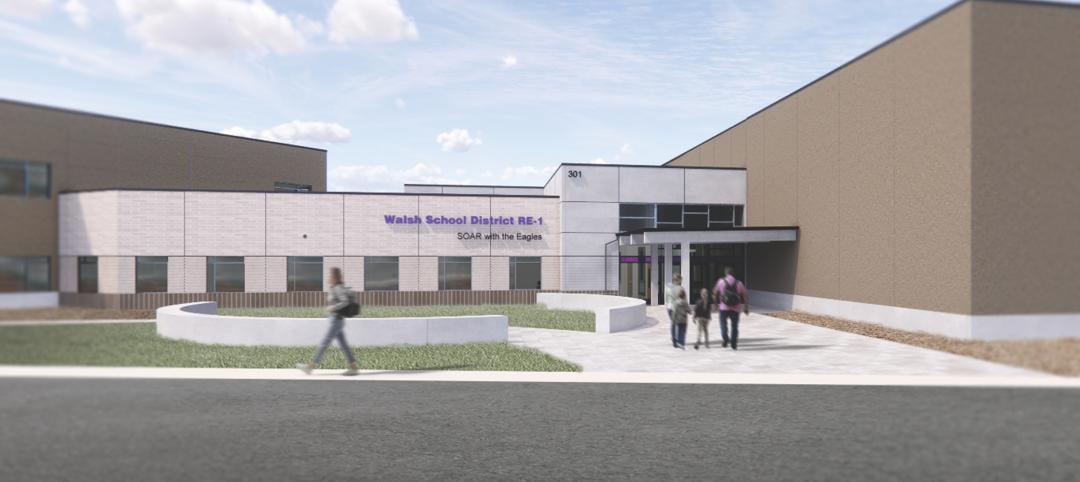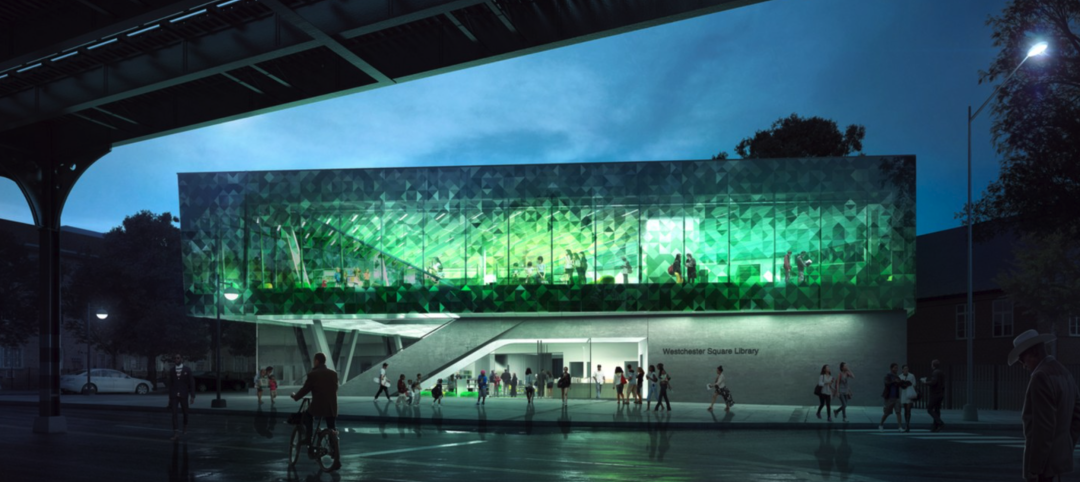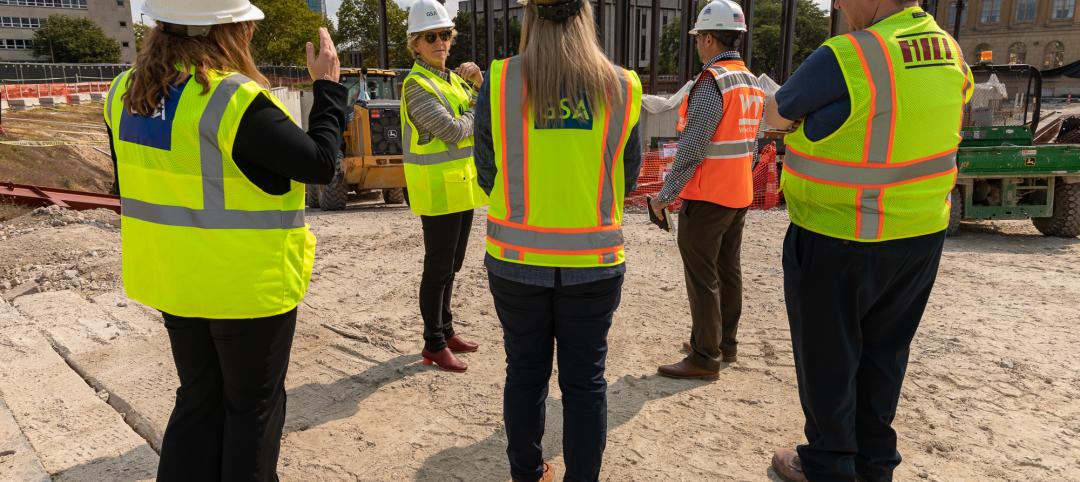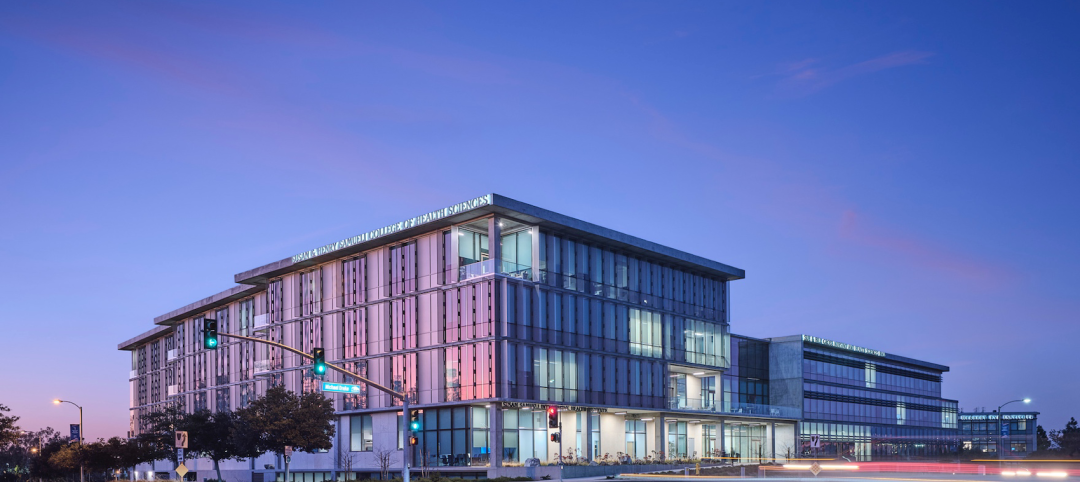The International Code Council (ICC), the American Society of Heating, Refrigerating and Air Conditioning Engineers (ASHRAE), the U.S. Green Building Council (USGBC), and the Illuminating Engineering Society of North America (IES) today announce the launch of the International Green Construction Code (IGCC), representing the merger of two national efforts to develop adoptable and enforceable green building codes. The IGCC provides the building industry with language that both broadens and strengthens building codes in a way that will accelerate the construction of high-performance, green buildings across the United States.
For decades, ICC and ASHRAE have worked to develop codes and standards that become the industry standard of care for the design, construction, operations and maintenance of residential and commercial buildings in the United States and internationally. In coordination with the efforts of ICC and ASHRAE, USGBC has been leading a nationwide green building movement centered on the LEED Green Building Rating System since LEED was launched in 2000. The convergence of these efforts in the IGCC is perhaps the most significant development in the buildings industry in the past 10 years.
Leveraging ICC's unrivaled delivery infrastructure to reach all 50 states and more than 22,000 local jurisdictions and ASHRAE, USGBC and IES's technical strengths, this partnership will accelerate the proliferation of green building codes and standards developed jointly by ICC, ASHRAE and USGBC and IES, across the country and around the globe. The newly launched IGCC establishes a previously unimaginable regulatory framework for the construction of high-performance, commercial buildings that are safe, sustainable and by the book.
A landmark addition to the technical content of the IGCC is the inclusion of ANSI/ASHRAE/USGBC/IES Standard 189.1, Standard for the Design of High Performance, Green Buildings Except Low-Rise Residential Buildings, as an alternate path of compliance. Standard 189.1 is a set of technically rigorous requirements, which like the IGCC, covers criteria including water use efficiency, indoor environmental quality, energy efficiency, materials and resource use, and the building's impact on its site and its community. Standard 189.1 was written by experts representing all areas of the building industry, who contributed tens of thousands of man hours. Developed in a little over three years, the standard underwent four public reviews in which some 2,500 comments were received.
"The emergence of green building codes and standards is an important next step for the green building movement, establishing a much-needed set of baseline regulations for green buildings that is adoptable, usable and enforceable by jurisdictions," said ICC Chief Executive Officer Richard P. Weiland. "The IGCC provides a vehicle for jurisdictions to regulate green for the design and performance of new and renovated buildings in a manner that is integrated with existing codes as an overlay, allowing all new buildings to reap the rewards of improved design and construction practices."
"Bringing together the code expertise of ICC with technical expertise of ASHRAE to create a comprehensive green building code will accelerate our transformation to more sustainable building practices," Gordon Holness, ASHRAE president, said. "ASHRAE is committed to providing the design guidance building designers and engineers need to reduce the energy consumption of buildings."
"The U.S. Green Building Council's mission is market transformation and we've long recognized the need to reach beyond the market leaders served by LEED to accomplish this goal," said Rick Fedrizzi, President, CEO and Founding Chairman of the U.S. Green Building Council. "Broadening the scope of the codes and establishing a higher floor allows us to continue to raise the ceiling, a critical factor in how the building industry is working to mitigate climate change. We are thrilled to see this set of complementary green building codes and standards; our organizations working collaboratively will advance green building nationwide in a way that was never before possible. "
"IES is pleased to support the collaborative efforts of the organizations which demonstrate expertise in code and technical standards development in this comprehensive green building code," said Rita Harrold, IES Director of Technology. "IES looks forward to ongoing guidance for sustainable building practices."
On Monday, March 15, ASHRAE, IES and USGBC will join ICC at its Washington, D.C., headquarters as they and their co-authors (the American Institute of Architects and the American Society for Testing Materials) launch the IGCC. On Monday, Standard 189 .1 and the IGCC will be available for wide distribution, providing much-needed content, code language, and vision for more safe and sustainable future. The organizations are also working together to advance related education and advocacy efforts to promote adoption, enforcement and compliance with the IGCC codes that will pave the way for green buildings and neighborhoods, while creating jobs and strengthening the economy.
For more information on IGCC: http://www.iccsafe.org/cs/IGCC/Pages/default.aspx and on Standard 189.1: www.ashrae.org/greenstandard.
Related Stories
Architects | May 23, 2023
DEI initiatives at KAI Enterprises, with Michael Kennedy, Jr. and Gyasi Haynes
Michael Kennedy, Jr. and Gyasi Haynes of KAI Enterprises, St. Louis, describe their firm's effort to create a culture of diversity, equity, and inclusion—and how their own experiences as black men in the design and construction industry shaped that initiative.
Multifamily Housing | May 23, 2023
One out of three office buildings in largest U.S. cities are suitable for residential conversion
Roughly one in three office buildings in the largest U.S. cities are well suited to be converted to multifamily residential properties, according to a study by global real estate firm Avison Young. Some 6,206 buildings across 10 U.S. cities present viable opportunities for conversion to residential use.
Architects | May 23, 2023
Ware Malcomb hires Francisco Perez-Azua as Director, Interior Architecture & Design, in its Miami office
Ware Malcomb hires Francisco Perez-Azua as Director, Interior Architecture & Design, in its Miami office.
K-12 Schools | May 22, 2023
The revival of single-building K-12 schools
Schools that combine grades PK through 12 are suddenly not so uncommon. Education sector experts explain why.
Architects | May 19, 2023
Snøhetta architects make a bid to unionize the firm's New York studio
Employees at the New York office of architecture firm Snøhetta have filed a petition with the National Labor Relations Board (NLRB) to unionize the studio. Snøhetta employees’ action marks the third time architects at a private-sector architecture studio in the U.S. took that step.
Healthcare Facilities | May 19, 2023
A new behavioral health facility in California targets net zero energy
Shortly before Mental Health Awareness Month in May, development and construction firm Skanska announced the topping out of California’s first behavioral health facility—and the largest in the nation—to target net zero energy. Located in Redwood City, San Mateo County, Calif., the 77,610-sf Cordilleras Health System Replacement Project is slated for completion in late 2024.
Government Buildings | May 18, 2023
GSA launches first biennial construction award program
Today, the U.S. General Services Administration (GSA) announced the new biennial GSA Construction Award program, which is seeking submissions this summer. The program was created to honor outstanding achievements in construction, with a focus on quality and craftsmanship, collaboration and team dynamics, sustainability, innovation, and technology. The first Construction Awards ceremony will take place in 2024.
K-12 Schools | May 17, 2023
Designing K-12 schools for students and safety
While bullying, mental health, and other acts of violence are all too common in schools today, designers have shown that smart and subtle preventive steps can make a big difference. Clark Nexsen’s Becky Brady shares how prevention and taking action at the design level can create safe and engaging learning environments.
Affordable Housing | May 17, 2023
Affordable housing advocates push for community-owned homes over investment properties
Panelists participating in a recent webinar hosted by the Urban Institute discussed various actions that could help alleviate the nation’s affordable housing crisis. Among the possible remedies: inclusionary zoning policies, various reforms to increase local affordable housing stock, and fees on new development to offset the impact on public infrastructure.
University Buildings | May 17, 2023
New UC Irvine health sciences building supports aim to become national model for integrative health
The new College of Health Sciences Building and Nursing & Health Sciences Hall at the University of California Irvine supports the institution’s goal of becoming a national model for integrative health. The new 211,660-sf facility houses nursing, medical doctorate, pharmacy, philosophy, and public health programs in a single building.
















